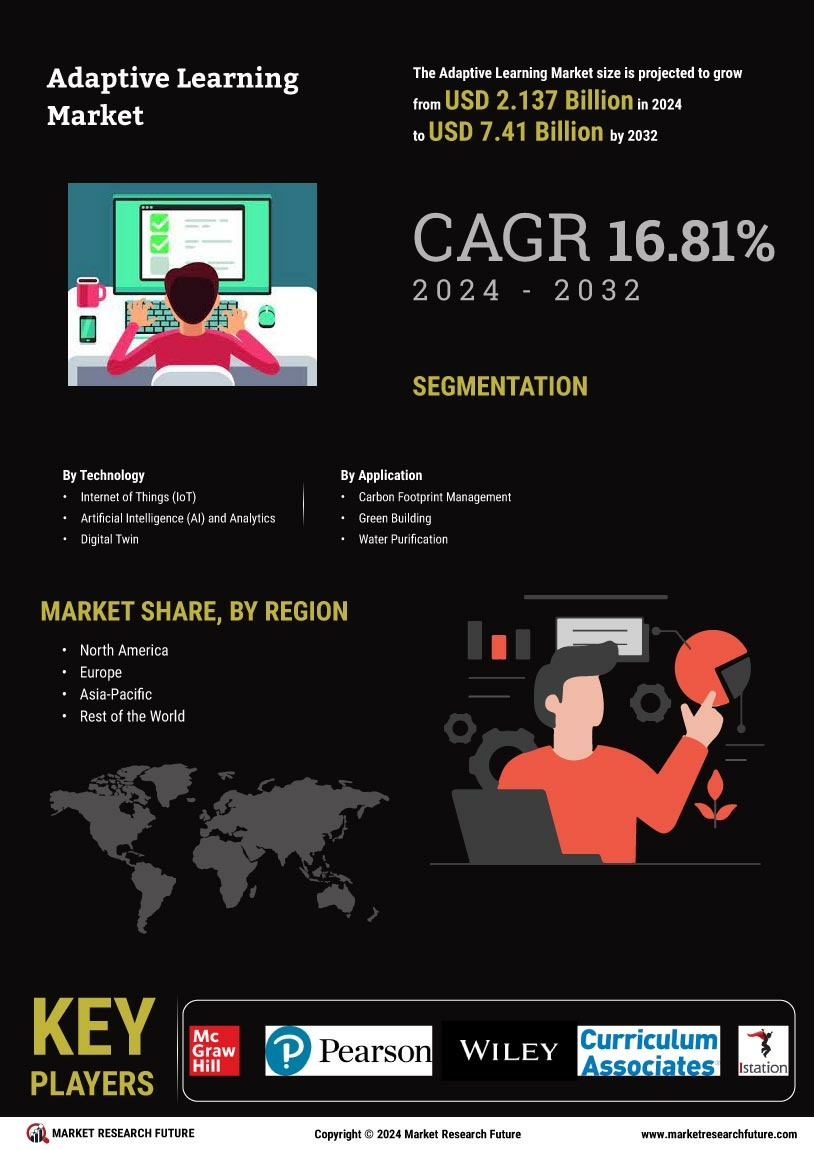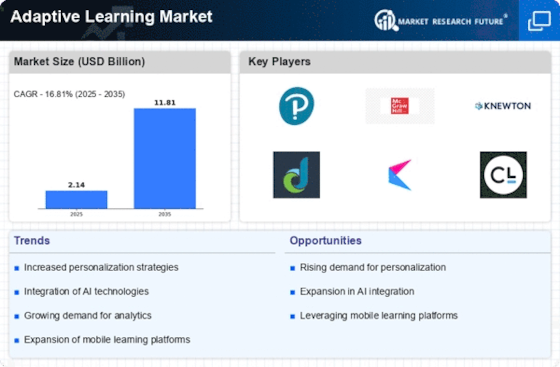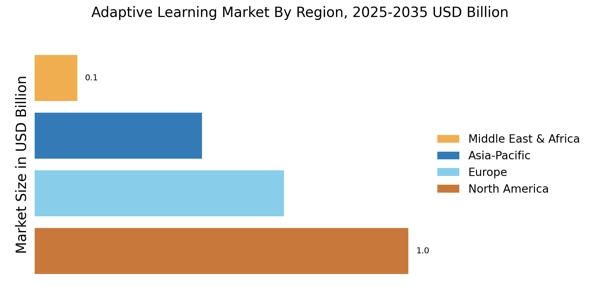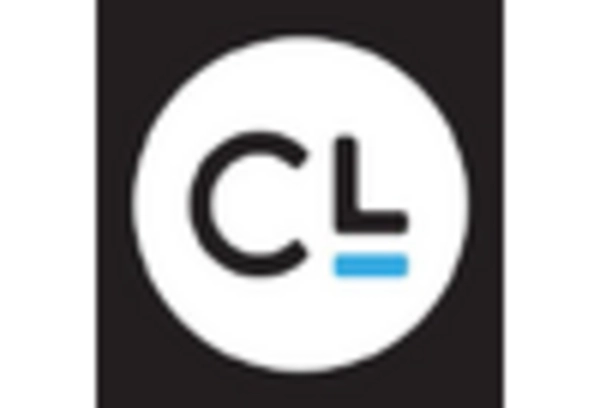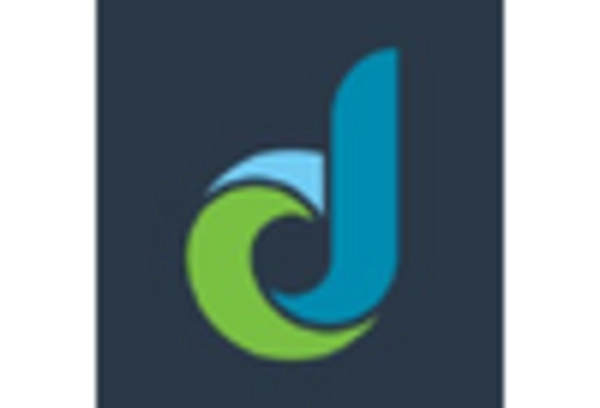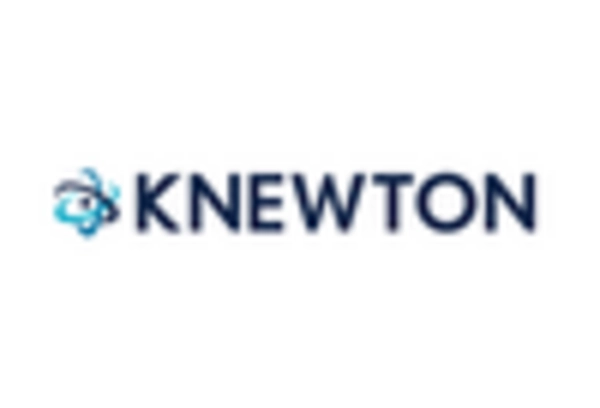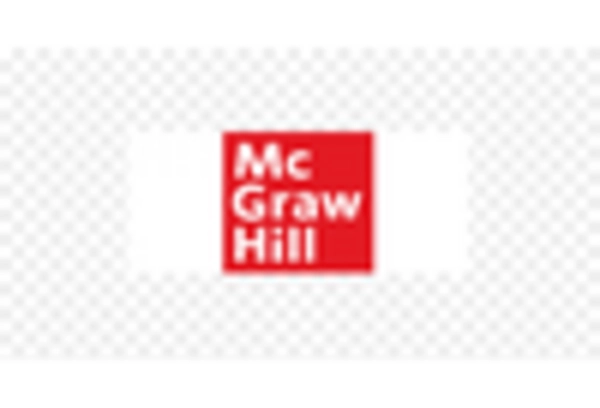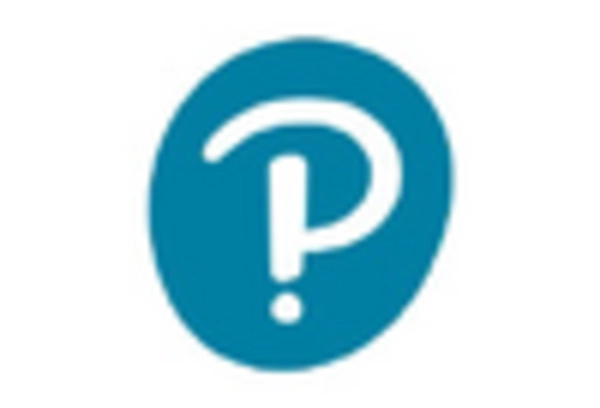Growth of E-Learning Platforms
The growth of e-learning platforms is significantly influencing the Adaptive Learning Market. With the increasing acceptance of online education, more learners are turning to digital platforms for their educational needs. Adaptive learning technologies are being integrated into these e-learning platforms to provide personalized learning experiences that cater to diverse learner profiles. Recent statistics indicate that the e-learning market is expected to reach a valuation of over 300 billion dollars by 2025, with adaptive learning solutions playing a crucial role in this growth. As educational institutions and corporate training programs continue to embrace e-learning, the demand for adaptive learning technologies is likely to rise, further driving market expansion.
Increased Focus on Skill Development
The Adaptive Learning Market is experiencing a surge in focus on skill development, particularly in response to the evolving job market. As industries demand a workforce equipped with specific skills, educational institutions are adapting their curricula to meet these needs. Adaptive learning technologies facilitate this shift by providing customized training programs that align with industry requirements. Data suggests that organizations utilizing adaptive learning solutions for employee training report a 40% increase in skill acquisition rates. This emphasis on skill development not only enhances employability but also drives the adoption of adaptive learning platforms across various sectors, thereby contributing to the market's expansion.
Integration of Artificial Intelligence
The integration of artificial intelligence (AI) into the Adaptive Learning Market is transforming the educational landscape. AI technologies enable the development of sophisticated algorithms that analyze learner behavior and performance in real-time. This capability allows for the creation of highly personalized learning paths that adapt to the unique needs of each student. Recent studies indicate that AI-driven adaptive learning solutions can enhance learning efficiency by up to 30%. As educational institutions and organizations recognize the potential of AI to optimize learning experiences, investments in AI-powered adaptive learning tools are expected to rise significantly, further propelling the growth of the Adaptive Learning Market.
Rising Demand for Personalized Education
The Adaptive Learning Market is witnessing a notable increase in demand for personalized education solutions. As educational institutions and corporate training programs seek to enhance learner engagement and outcomes, adaptive learning technologies are becoming essential. According to recent data, the market for personalized learning solutions is projected to grow at a compound annual growth rate of approximately 25% over the next five years. This growth is driven by the recognition that tailored educational experiences can significantly improve knowledge retention and learner satisfaction. Consequently, educational providers are increasingly investing in adaptive learning platforms that cater to individual learning styles and paces, thereby fostering a more effective learning environment.
Government Initiatives Supporting Education Technology
Government initiatives aimed at enhancing education technology are playing a pivotal role in the Adaptive Learning Market. Many governments are recognizing the importance of integrating technology into education to improve learning outcomes and accessibility. Initiatives such as funding for educational technology projects and partnerships with tech companies are becoming increasingly common. For instance, recent government reports indicate that investments in education technology are projected to exceed 50 billion dollars in the coming years. These initiatives not only promote the adoption of adaptive learning solutions but also encourage innovation within the industry, thereby fostering a conducive environment for the growth of the Adaptive Learning Market.
